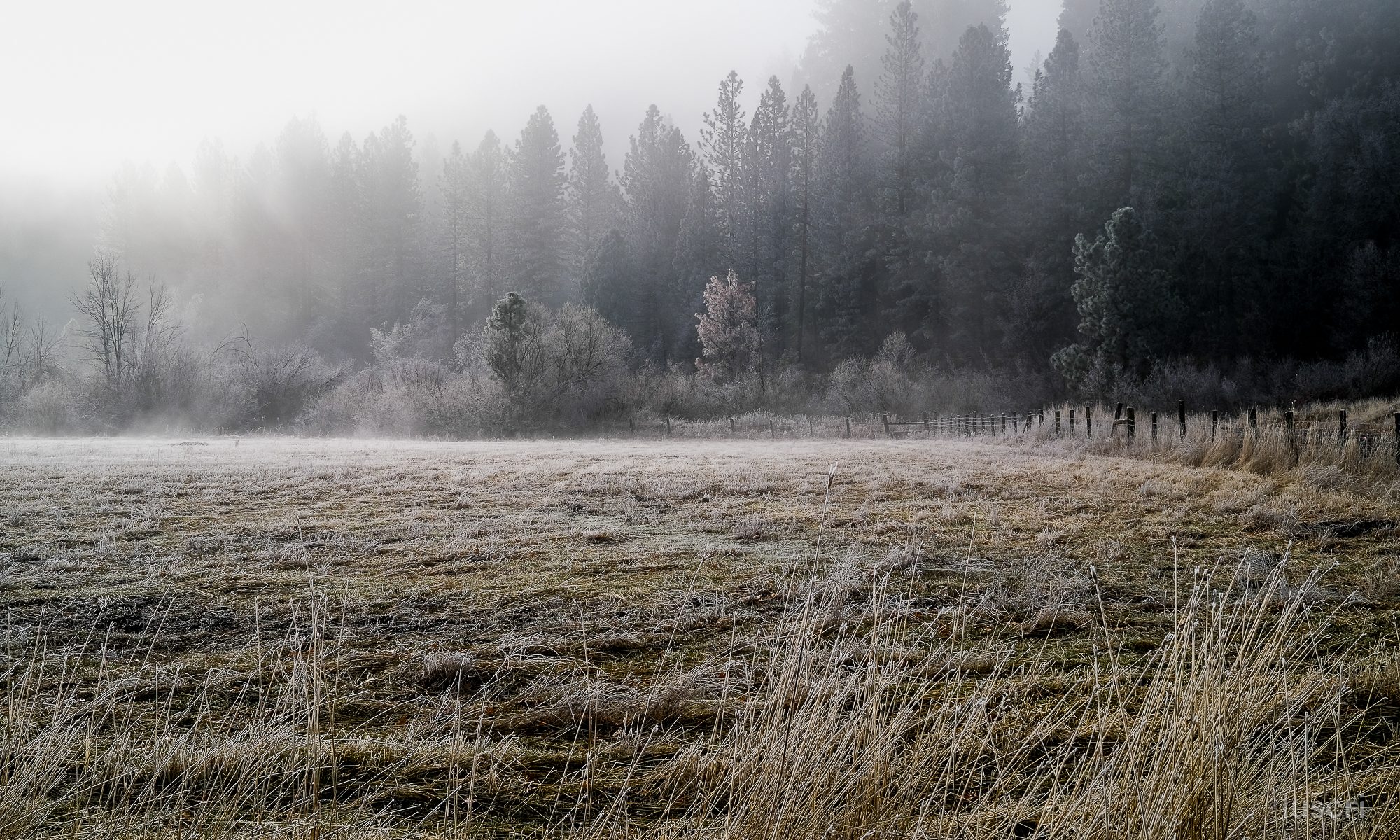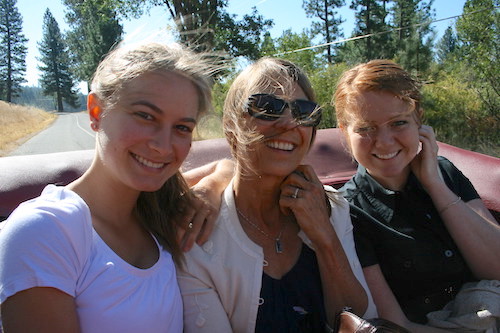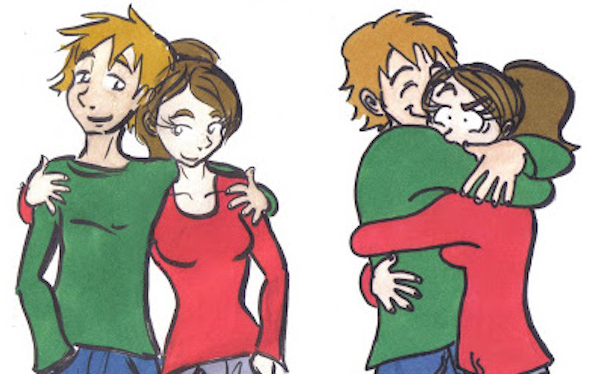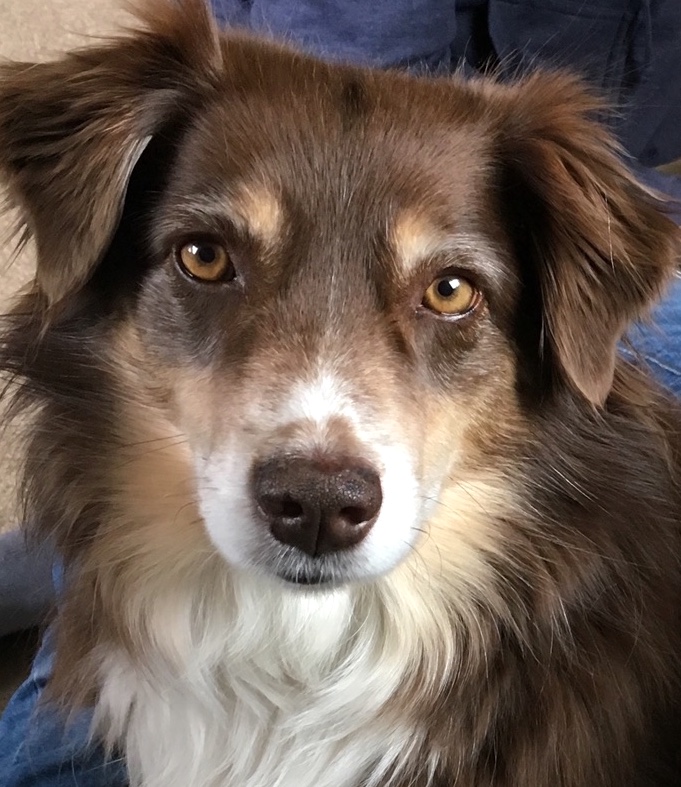
I’m not a father, but hope to be someday. I like to think I have a lot of love to give. I also know I’m learning what it means to truly love.
I know this because I’m learning it in the hardest, most heartbreaking way of my life. I’m learning to love and lose from a little dog named Puppen.
Her real name was Jewel, but we didn’t like it because it wasn’t a fashionable fit for our then eight-year-old Scottish/Cairn Terrier, Jack, or Captain Jack, the pirate. Jewel and Jack? The alliteration works, but we could do better.
Jack and Jill? Nah. Who names their dog, Jill? Let’s see … how about a liquor theme? Jack and Brandy? Brandi. Bingo.
We called her Brandi about a dozen times, but it felt like we did so to call her down. Brandi didn’t work because it didn’t fit. Our little tri-color (red, tan and white) Miniature Aussie deserved better. Then my wife’s mom called her “Pupdawg.”
Pupdawg. It fit. She became Pupdawg and Pupdups and Pupcake. Then, for us, she became Puppen.
And Puppen was perfect.
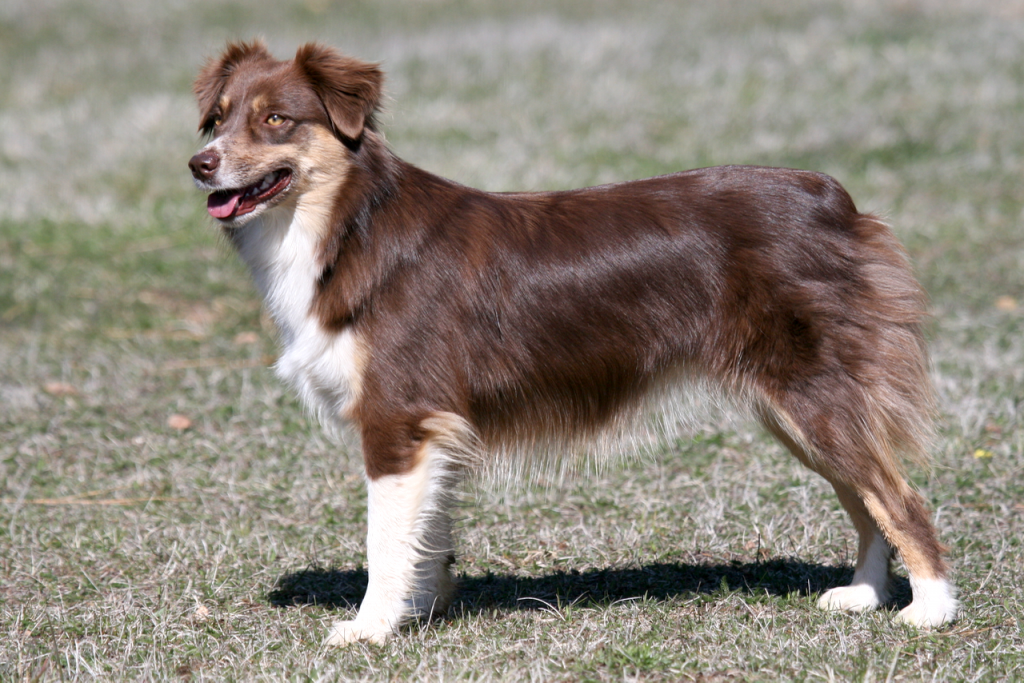
Lover and leaper
She was a natural, consummate athlete. She moved with a fluid efficiency, nothing wasted. Puppen quickly revealed her love for chasing, leaping and catching Chuckit-propelled balls and, later, for frisbee fetch.
Puppen was an affectionate love-bug. She’d lean against you during car rides, snuggle sessions, afternoon naps—she was an ultra-sensitive natural therapy dog who gave as good as she got.
Her car-ride love-leaning turned my father-in-law from a cat person to a guy who rushed to our Miniature Aussie breeder to get his own Puppen—her half-brother who became his Merley.
Puppen was, paws-down, the smartest little whip of a dog I’ve ever known. She picked us at the breeder’s. While her litter mates rolled around in a big ball of furry puppy, she stood apart investigating her surroundings. Then she saw us.
Puppen made a beeline for the fence gate and stood on her hind legs to welcome me with a few well-placed whimpers and longing gazes from her soulful brown eyes. She seemed to be saying, Get me outta here and make me yours. These brothers and sisters of mine are idiots.
No training needed
My mother-in-law has complimented us more than once on how well-trained Puppen was. I had to correct her. She trained herself. Puppen was an obedient, loving, wicked-smart dog who naturally took to frisbee fetch, love leans, and so many other wonderful things that made her her.
A contractor friend reminded me of Puppen’s intelligence one day while he was building a music studio for my father-in-law. “She’s the smart one. When she watches me work, I can tell she’s thinking things through.”
Puppen would ascend to her perch of a giant red rock on the ranch to survey the situation while the three other dogs ran off barking at phantom intruders. Let the slobberheads scare up whatever it was (or wasn’t)—I’ll wait here and watch.
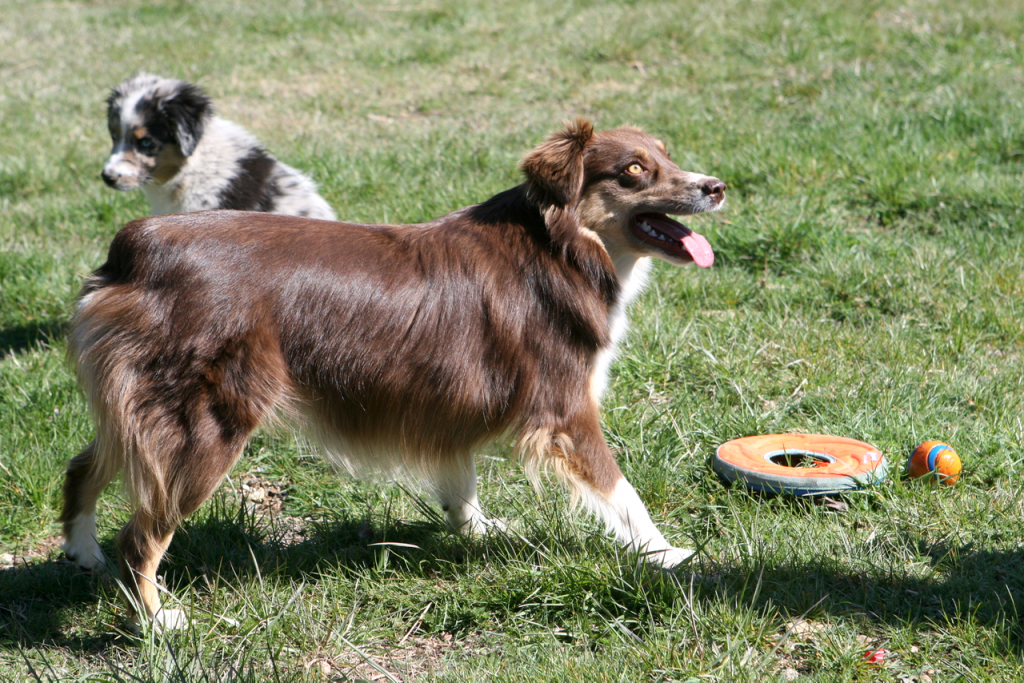
A month or so ago, Puppen was in the prime of her life—a few months shy of six and always ready to go and keep going while chasing frisbees and launching herself in the pond after well-placed ball throws.
Too much, too soon
Puppen seemed indestructible. We looked forward to many, many more years of joy with our perfect little dog. Life was wonderful. Then we were caught flat-footed the last Saturday morning in June when Puppen woke us wailing.
Her teeth were locked on the bars of her crate, eyes wide and bulging. Through tears and our worst fears, I unlocked her teeth and gently pushed her snout back through the bars. My wife pulled her out, her body limp, as she panted and drooled.
We called the vet and were told he was booked with emergencies. Emily’s parents rushed over in robes and slippers. Puppen seemed to rally, but then suffered another seizure that caused Emily’s father to collapse on the carpet next to her crying, “Oh, no, no … Pupdawg, Pupdawg.”
We carried Puppen to the truck and headed off to Reno for an emergency vet an hour and a half away. It was the longest drive of my life. As my wife tried in vain to comfort her, Puppen went through a half a dozen more seizures during which she wailed and paddled her front feet helplessly.
When we finally arrived, Puppen gave my wife one last look that may haunt her for the rest of her life. For one brief instant, she looked at her with recognition. During her fits, those piercingly intense brown eyes went blank.
prognosis: Grief
I carried Puppen into the clinic where she was whisked to the back for an IV and for what we hoped would be seizure-stopping midazolam. While waiting for the vet, we heard her screaming every ten minutes or so.
At this point, I was confident the vet would verify that Puppen had late-onset epilepsy and that it was merely a matter of getting things under control and then managing her condition with medication.
The look on his face told a different story. He knew Puppen was in deep trouble. We talked about cat scans and MRIs and taking her to Sacramento three hours away. We called Emily’s father who had spoken with his vet friend.
We discussed leaving her at the pet hospital and in good hands until Monday. Surely by then the IV and medicine would help her rally, so we could get her to another vet with advanced medical imaging capabilities. So we could fix her.
We asked to see Puppen before we decided what to do.
One look at our little pupdawg shattered all our plans and hopes.
Fear and anguish
Lying on her side with a puppy blanket covering her to the shoulders, her eyes were blank and half open. Her breathing was labored. Then she wailed and writhed. The addition of two more injections of the stronger anti-seizure medicine, phenobarbital, did nothing to help her.
The vet told us that her heart rate was dangerously low, which is not a symptom of epilepsy. He said that she probably wasn’t in pain, but was confused and frightened. Our little Puppen was a smart, sensitive little dog, and the information broke our hearts.
When her seizure ended, she panted and drooled, but when we spoke to her close, her ear flicked and she let out a faint whine of recognition.
This is when we knew that it would be an absolute mercy to deliver her and let her go. When Emily gave the word through sobs, I told a visibly relieved and wonderfully kind vet what he knew and hoped we’d choose to do.
They wheeled Puppen into a private room. We spoke to her soothingly and she whined with each word while desperately staving off yet another racking seizure. Her whines seemed far away and sadly plaintive. The vet gave us a merciful yet heartrending ten minutes or so with her.
Our words to her were of sorrow and regret that we couldn’t help her live and would miss her terribly.
Merciful release
As I watched the overdose of pentobarbital run from the plunger and into Puppen, she breathed deeply several times in a way that I can only describe as a peaceful letting go of relief. When her heart stopped forever, we sobbed in each others’ arms while the vet verified that it was done.
They wrapped her in a sheet and took an ink paw print. I carried her out to the truck through tears. We would bury her in a grove of cedars on the ranch, so that our little Jacky could join her at some point.
As I carried Puppen down the drive to the cedar grove. I cradled her little head against my neck. Through sobs, I told her I was sorry I couldn’t save my little girl. My wife braced me as we stumbled to her resting place. We’d picked her together and brought her home nearly six years before and now we were letting her go so cruelly early.
It seemed surreal and impossible that she was gone. How could such an athletic, intelligent, energetic, loving, obedient, beautiful little dog get so sick so fast? The disbelief and grief hit us like a freight train.
From sadness to fondness
Today is a week since our world was rocked. We’ve cried together and laughed with recollection of Puppen’s short, dreamy life as a ranch dog. We see her everywhere here. Somehow the memory of a little 16-inch dog casts a giant shadow everywhere we look and on our hearts.
We know time will heal us, and we’ll think of her with smiles and sadness, and later with fondness and little stabs of happiness.
Meanwhile, God is using Puppen and our love for her to tenderize our hearts toward each other and toward others. There’s nothing more clarifying than the life-color-draining grief of losing a love—even one for a dog.
My wife says the cedar grove where we buried Puppen reminds her of the Cedars of Lebanon, the Old Testament stronghold of a living, loving Lord. She says she feels like God is guarding Puppen even as he guards her heart.
Learning to truly love
I’m learning to love the one who made Puppen and who loves her more deeply than I ever could. Jesus wept for Mary and Martha as they grieved the loss of their brother, Lazarus. He wept even though he knew that day he would raise him from the dead. This is the sign of the ultimate loving and knowing heart.
I like to think that we’ll see Puppen again when God makes all things new. When he heals this broken world and knits the bones and flesh of our little pupdawg back together with a word of command and perfect love for us and his creatures.
Someday, there will be no more tears or pain or fear or seizures or heartbreak. I long for that day with a newly-softened heart that God used my little girl, Puppen, to break, so he could heal.
